
Charlie Chan is a fictional Honolulu police detective created by author Earl Derr Biggers for a series of mystery novels. Biggers loosely based Chan on Hawaiian detective Chang Apana. The benevolent and heroic Chan was conceived as an alternative to Yellow Peril stereotypes and villains like Fu Manchu. Many stories feature Chan traveling the world beyond Hawaii as he investigates mysteries and solves crimes.

Shanghai Knights is a 2003 American martial arts action comedy film. It is the sequel to Shanghai Noon, and the second installment of the Shanghai film series. Directed by David Dobkin and written by Alfred Gough and Miles Millar, it stars Jackie Chan, Owen Wilson, Fann Wong, Donnie Yen and Aidan Gillen.

Mr. Nice Guy is a 1997 English-language Hong Kong action comedy film directed by Sammo Hung, who also cameo appearance as an unfortunate cyclist. The film stars Jackie Chan and Richard Norton. The film was released theatrically in Hong Kong on 31 January 1997.
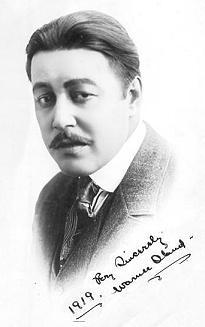
Warner Oland was a Swedish-American actor. His career included time on Broadway and numerous film appearances. He is most remembered for playing several Chinese and Chinese-American characters: Dr. Fu Manchu, Henry Chang in Shanghai Express, and, most notably, Honolulu Police detective Lieutenant Charlie Chan in 16 films.
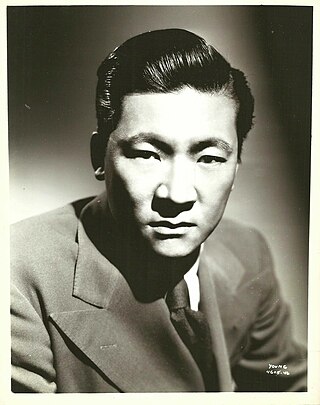
Victor Sen Young was an American character actor, best known for playing Jimmy Chan in the Charlie Chan films and Hop Sing in the western series Bonanza. He was born in San Francisco, California to Gum Yung Sen and his first wife, both immigrants from China.
Charles Chan and Lee-lee Chan were the parents of actor/director/singer Jackie Chan and the grandparents of actor/singer/composer Jaycee Chan. Due to being the father of Jackie Chan, Charles made cameos in some of Chan's films such as Police Story 2 and also starred in his own film once made by a company trying to advertise it as a Jackie Chan film.

New Police Story is a 2004 Hong Kong action thriller film directed by Benny Chan. It stars Jackie Chan, Nicholas Tse, Charlie Yeung, Charlene Choi, and Daniel Wu. The film was released theatrically in Hong Kong on 24 September 2004.

Charlie Chan at Monte Carlo is a 1937 American mystery film directed by Eugene Forde and starring Warner Oland, Keye Luke and Virginia Field. The main character is Charlie Chan, a Chinese-Hawaiian detective. This was the sixteenth and final Charlie Chan film with Oland portraying Chan. The film features Keye Luke as Charlie's son Lee and character actor Harold Huber as a French police inspector. It was produced and distributed by 20th Century-Fox.
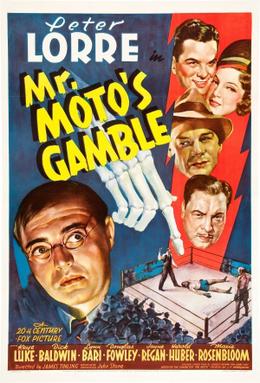
Mr. Moto's Gamble is the third film in the Mr. Moto series starring Peter Lorre as the title character. It is best remembered for originating as a movie in the Charlie Chan series and being changed to a Mr. Moto entry at the last minute.

Invisible Target is a 2007 Hong Kong action film directed and produced by Benny Chan, who also wrote the screenplay with Rams Ling and Melody Lui. The film stars Nicholas Tse, Jaycee Chan and Shawn Yue as three police officers who are thrown together due to their backgrounds to bring down a gang of seven criminals led by Tien Yeng-seng.

Charlie Chan in Paris is the seventh film produced by Fox with Warner Oland as Charlie Chan. Long thought lost, it is available on DVD as part of Twentieth Century Fox Home Video's Charlie Chan Collection, Vol. 1. Hamilton MacFadden directed some early scenes before Lewis Seiler took over. It is the first entry in the series to feature actor Keye Luke, who would become a mainstay in his role as Chan's "Number One Son" Lee.
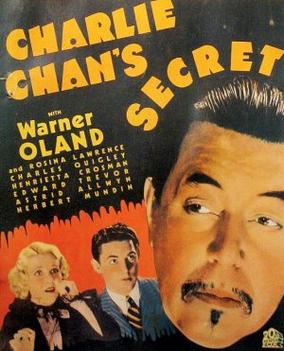
Charlie Chan's Secret is a 1936 American mystery film directed by Gordon Wiles and starring Warner Oland, Henrietta Crosman and Rosina Lawrence. It is the tenth film in Fox's Charlie Chan series featuring Oland as the detective.
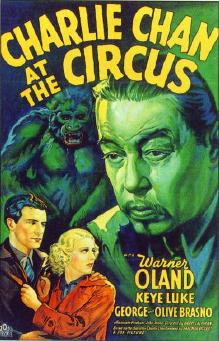
Charlie Chan at the Circus is the 11th film produced by Fox starring Warner Oland as Charlie Chan. A seemingly harmless family outing drags a vacationing Chan into a murder investigation.
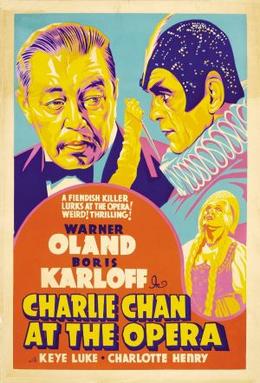
Charlie Chan at the Opera is considered by many to be the best Warner Oland Charlie Chan film, probably due to the presence of Boris Karloff as the principal suspect, as well as faux operatic music composed by Oscar Levant. This is the 13th film starring Oland as Chan; it was directed by H. Bruce Humberstone for 20th Century-Fox in 1936.

The Owl vs Bombo is a 1984 Hong Kong action comedy film directed, produced by and starring Sammo Hung. The film co-stars George Lam and Deanie Ip. The film is Michelle Yeoh's first film role.

The Golden Eye is a 1948 American film directed by William Beaudine and starring Roland Winters in his fourth appearance as Charlie Chan. The film is also known as Charlie Chan in Texas and Charlie Chan in the Golden Eye .The film is in the public domain due to the omission of a valid copyright notice on original prints.
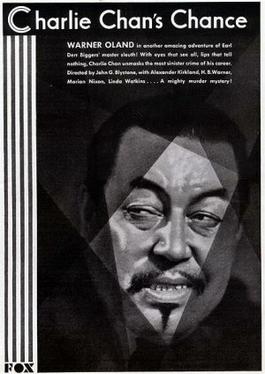
Charlie Chan's Chance is a 1932 American pre-Code murder mystery film, the third to star Warner Oland as detective Charlie Chan. It is based on the 1928 novel Behind That Curtain by Earl Derr Biggers, who also contributed to the film. The film is considered to be lost.

Charlie Chan at the Olympics is a 1937 American mystery film directed by H. Bruce Humberstone and starring Warner Oland, Katherine DeMille and Pauline Moore. It is possibly the most topical Charlie Chan film, as it features actual footage from the 1936 Berlin Olympics. There is also a scene where Charlie crosses the Atlantic in the Hindenburg. This is the 14th film starring Warner Oland as Chan and produced by Fox.

The Shanghai Cobra is a 1945 mystery film directed by Phil Karlson and starring Sidney Toler as Charlie Chan.
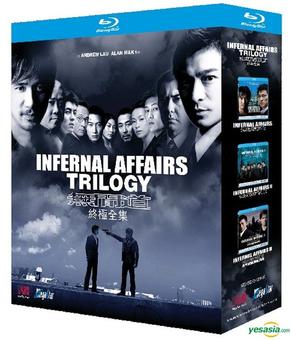
Infernal Affairs is a series of three crime-action films directed by Andrew Lau and Alan Mak, starring Andy Lau and Tony Leung. It tells the story of a police officer who infiltrates the triads, and a police officer secretly working for the same gang. The Chinese title means "the non-stop way", a reference to Avici, the lowest level of hell in Buddhism. The English title is a word play combining the law enforcement term "internal affairs" with the adjective "infernal". The Criterion Collection released the trilogy as a box set on November 15, 2022.



















